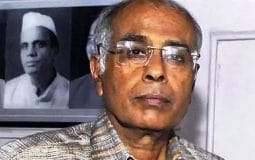One of the downsides of becoming a sports pro is that your time at the top can be so fleeting. In most sports, athletes are at their peak from their mid 20s to their early 30s. With just seven or so years at the absolute pinnacle of their game, it’s understandable how frustrating it can be if injury or some other medical circumstance leaves them sidelined for any length of time.
For female athletes, there is the extra complication of parenthood. It’s one thing hearing the guys talk about how becoming a father disrupts their training regimes and so on. However, pregnancy and childbirth are processes that have a dramatic impact on the human body and one from which it takes time to recover.
The female athletes who have returned to their best after motherhood are few and far between. Serena Williams and Sania Mirza spring to mind, but there are few others. Vidarbha wicketkeeper Shweta Naidu Kadam has now joined this exclusive club, and is the first Indian cricketer to do so.
Five years away
Nagpur-born Shweta made her first class debut behind the stumps in 2007 at the age of 18, and played her last List-A game in 2016. That same year, she married Amit Kadam, and in 2018, their son Rudransh was born. Over the past year, Shweta has been focusing on getting back to match fitness, and the hard work has paid off, and she is back in the Vidarbha first team squad.
Doubtless she will notice some significant changes that have taken place over the past five years. Women’s cricket has advanced dramatically in terms of participation and profile. These days, the women’s game gets far more attention from the printed media and cricket news online than it did in 2016. There is also increased TV coverage, and therefore better sponsorship deals and more funding.
An inspiration to tomorrow’s cricketers
Inspiring the next generation is all part of the job when you are a sports pro. Rahul Dravid inspired Virat Kohli to follow his dream, and the rest is history. But in women’s sport, a role model like Shweta Kadum plays an even more important role. There is an ingrained perception among female athletes that they must choose between sporting success and family. A Vidarbha teammate of Shweta’s commented that many cricketers delay marriage for years in order to pursue their sporting aspirations, while others leave the game at 30 or 32, never to return.
It’s enough to make any girl in her late teens wonder whether it is really worth it. Shweta is a vital role model and is living proof that it is not a case of choosing one path or the other. A Viidarbha Cricket Association representative told reporters that she has been selected purely on merit, saying: “We only went by her performance and experience. She has always been a quality keeper and will be a good asset for this young team.”
















